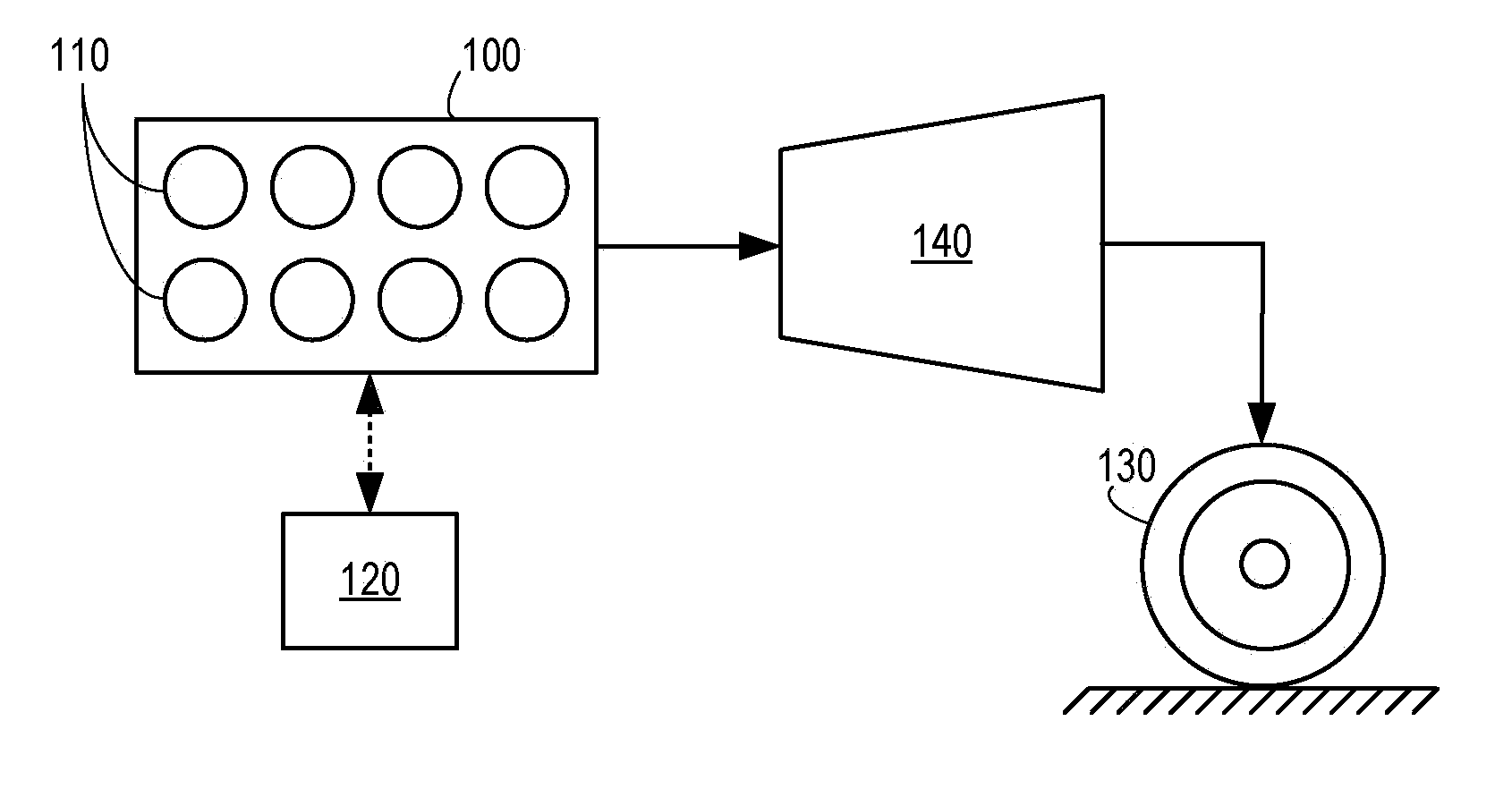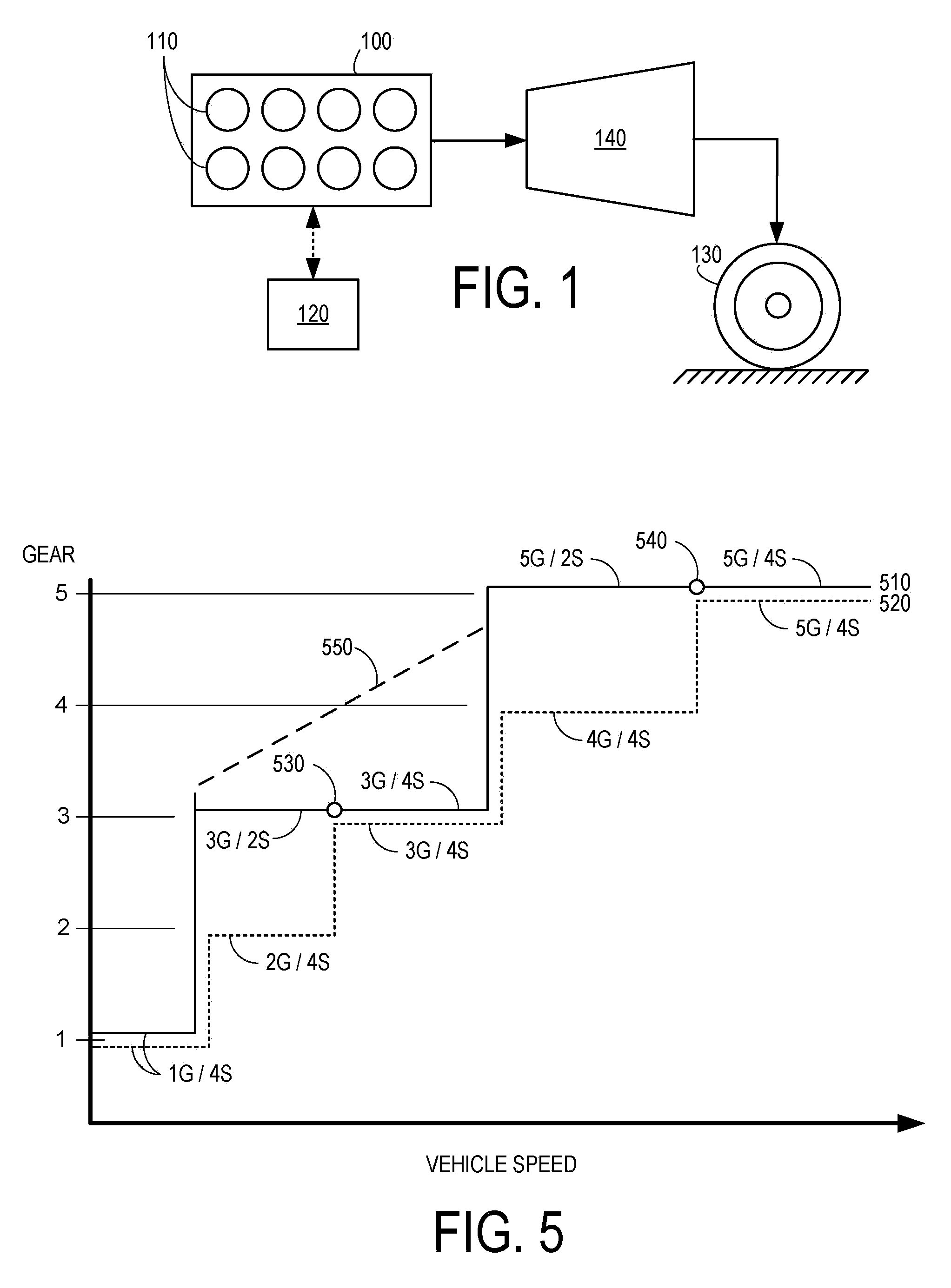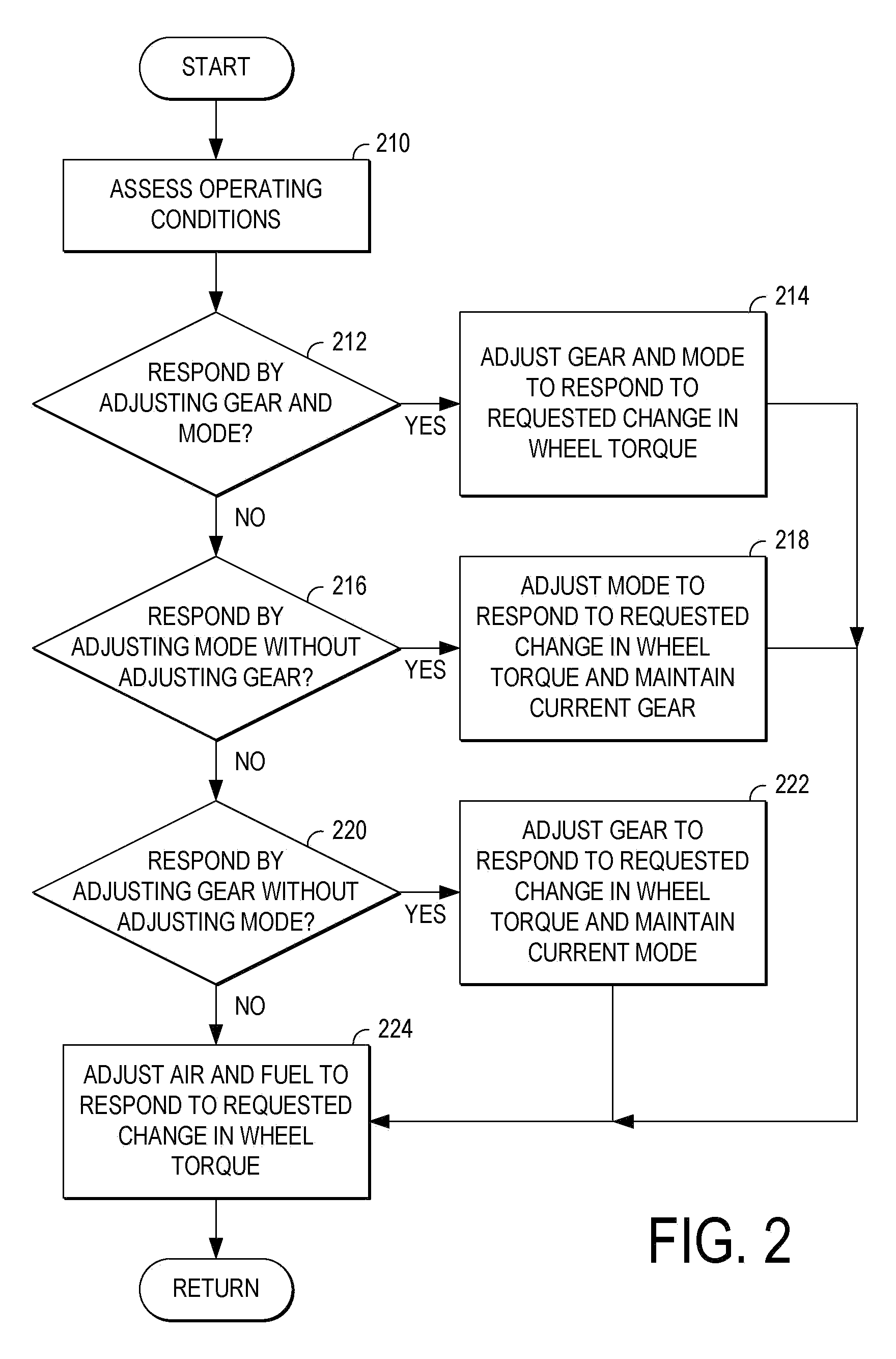Transmission scheduling for multi-stroke engine
a multi-stroke, engine technology, applied in the direction of engine controllers, machines/engines, electric control, etc., can solve the problems of reducing fuel efficiency, increasing transmission wear, reducing drivability of vehicles, etc., to achieve greater maximum torque, greater power density of engines, and greater fuel efficiency
- Summary
- Abstract
- Description
- Claims
- Application Information
AI Technical Summary
Benefits of technology
Problems solved by technology
Method used
Image
Examples
Embodiment Construction
[0013]FIG. 1 illustrates a propulsions system for a vehicle including an internal combustion engine 100. Engine 100 may be operatively coupled with one or more vehicle drive wheels indicated schematically at 130 via a transmission 140. Engine 100 may include one or more combustion chambers or cylinders 110, a non-limiting example of which is depicted schematically in FIG. 8. In the example propulsion system of FIG. 1, engine 100 includes a total of eight cylinders. Engine 100 may include other suitable numbers of cylinders in other embodiments, including 2, 3, 4, 5, 6, 10, or 12 cylinders. A control system 120 may be operatively and communicatively coupled with engine 100 as well as transmission 140, drive wheel 130, and other suitable components of the vehicle propulsion system.
[0014]In some embodiments, transmission 140 may be configured as a continuously variable transmission (CVT), whereby the gear ratio of the transmission may be increased or decreased continuously across a gea...
PUM
 Login to View More
Login to View More Abstract
Description
Claims
Application Information
 Login to View More
Login to View More - R&D
- Intellectual Property
- Life Sciences
- Materials
- Tech Scout
- Unparalleled Data Quality
- Higher Quality Content
- 60% Fewer Hallucinations
Browse by: Latest US Patents, China's latest patents, Technical Efficacy Thesaurus, Application Domain, Technology Topic, Popular Technical Reports.
© 2025 PatSnap. All rights reserved.Legal|Privacy policy|Modern Slavery Act Transparency Statement|Sitemap|About US| Contact US: help@patsnap.com



